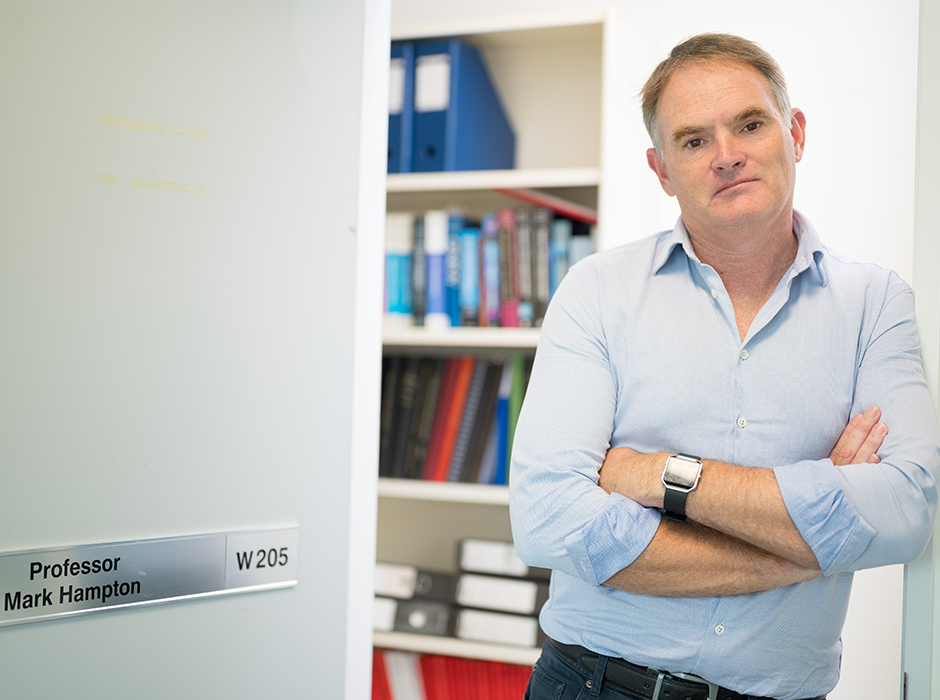
Professor Mark Hampton and his team have won this year's Otago Innovation Ltd Proof of Concept award.
Professor Mark Hampton from the University of Otago, Christchurch, has won this year’s Otago Innovation Ltd (OIL) Proof of Concept award, to advance his team’s research into improving the efficacy of cancer drugs.
Now in its 18th year, the highly competitive OIL competition - which comes with $100,000 to support the winner’s research - is an opportunity for academics, post-docs and PhD candidates to test their commercially prospective ideas in front of an expert panel of mainly external judges.
The win will now see Mark and his team at the Mātai Hāora Centre for Redox Biology and Medicine “prove their concept” and validate their vital work into targeted cancer therapeutics.
“There are drugs in clinical use that were cleverly designed to just kill cancer cells,” Mark says.
“Patients often have remarkable initial responses, but unfortunately some cells can develop resistance and the cancer will return.”
Mark and his team have discovered changes in resistant cancer cells that may make them vulnerable to other drugs. They are exploring whether a combined treatment can kill resistant cancer cells, and maybe even stop them from developing in the first place.
One of their new treatment strategies has come from a botched experiment they’d made in the lab.
“We have been studying one protein for many years. We used genetic engineering tools to change the protein in cancer cells we were growing in the lab. The original goal was to answer a fundamental question about how the protein worked,” Mark says.
“The cancer cells with the modified protein were very unhappy. While the detrimental effects interfered with our original goal, it opened up this new line of research.”
The initial focus of the team’s research is melanoma. New Zealand has one of the highest melanoma incidence rates in the world with about 13 people diagnosed daily and 300 dying from it annually.
“Targeted drugs can be very helpful against melanoma cells with mutations in a gene called BRAF. We are looking to improve the long-term effectiveness of BRAF inhibitors, which work in about half of all melanoma patients,” Mark says.
OIL CEO David Christensen says there is a compelling need for Mark’s research.
OIL aims to not only link researchers with commercial partners in order to turn their ideas into products to benefit the world, but to provide strong financial support in getting an idea to the point where it can be successfully matched with a commercial partner.
Since 2006, Proof of Concept competition submissions have included ideas ranging from human therapeutics, biomarkers and software development, to improved technology in household devices.